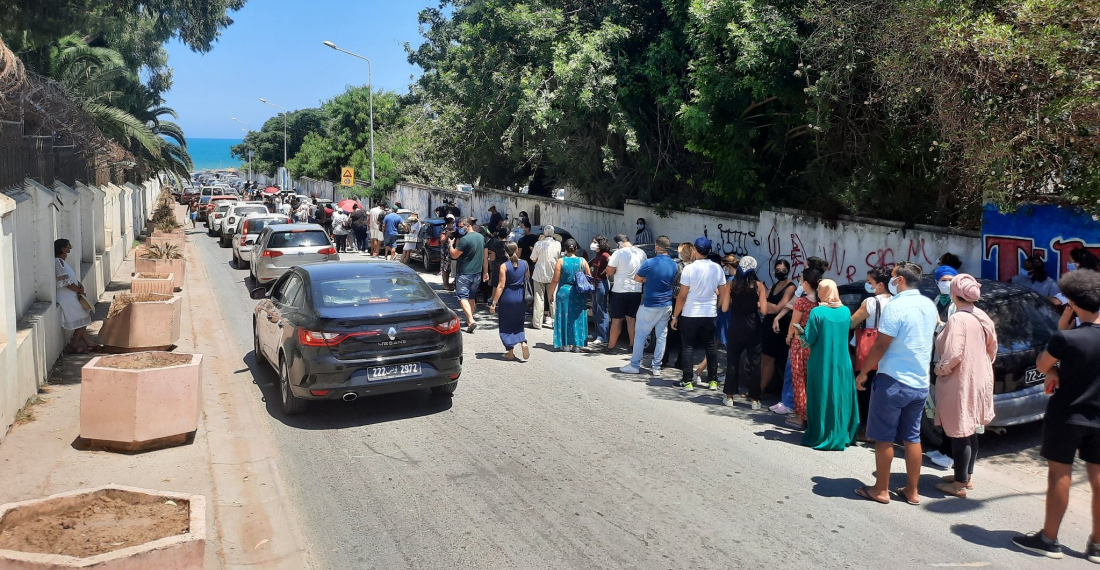Tunisia is witnessing a quickly deteriorating health situation as Covid-19 cases reach an all-time high with public hospitals struggling to cope. The Delta variant is to blame along with poor vaccination performance. With only 7 per cent of the country’s population fully vaccinated, the virus exasperates the already tense political and economic situation.
The deteriorating health situation is also testing the limits of a tense political situation caused by disputes between the president, prime minister and speaker of parliament. President Kais Saied late on Wednesday (21 July) put the military in charge of the pandemic response. A day earlier, prime minister Hichem Mechichi sacked the health minister, Faouzi Mehdi, following a chaotic situation in hospitals and undersupplied vaccination centres. Mehdi had initiated a temporary opening of vaccination stations to all Tunisians over 18 but that led to a stampede in which all jabs available were quickly exhausted.
The situation over the last two days, which occurred at the time of the Muslim feast of Eid Al-Adha, is playing out in parallel to the political dispute between the president and the prime minister. Mehdi was already on a list of ministers scheduled to be removed by the prime minister, a move that had earlier been rejected by the president.
Youssef Cherif, a political analyst that heads the Columbia Global Center in Tunis, says that Covid has not been a first priority for the country's political leaders as the heads of the three government branches "kept fighting their daily political quarrels rather than addressing the crisis." The sacking of the health minister comes after several ministers resigned earlier over tensions with parliament and the presidency.
The military is already taking part in the fight against Covid-19 as military medics carry out vaccinations in remote parts of Tunisia while military trucks transport oxygen to regions in the centre and northwest of the country where hospitals are suffering shortages.







